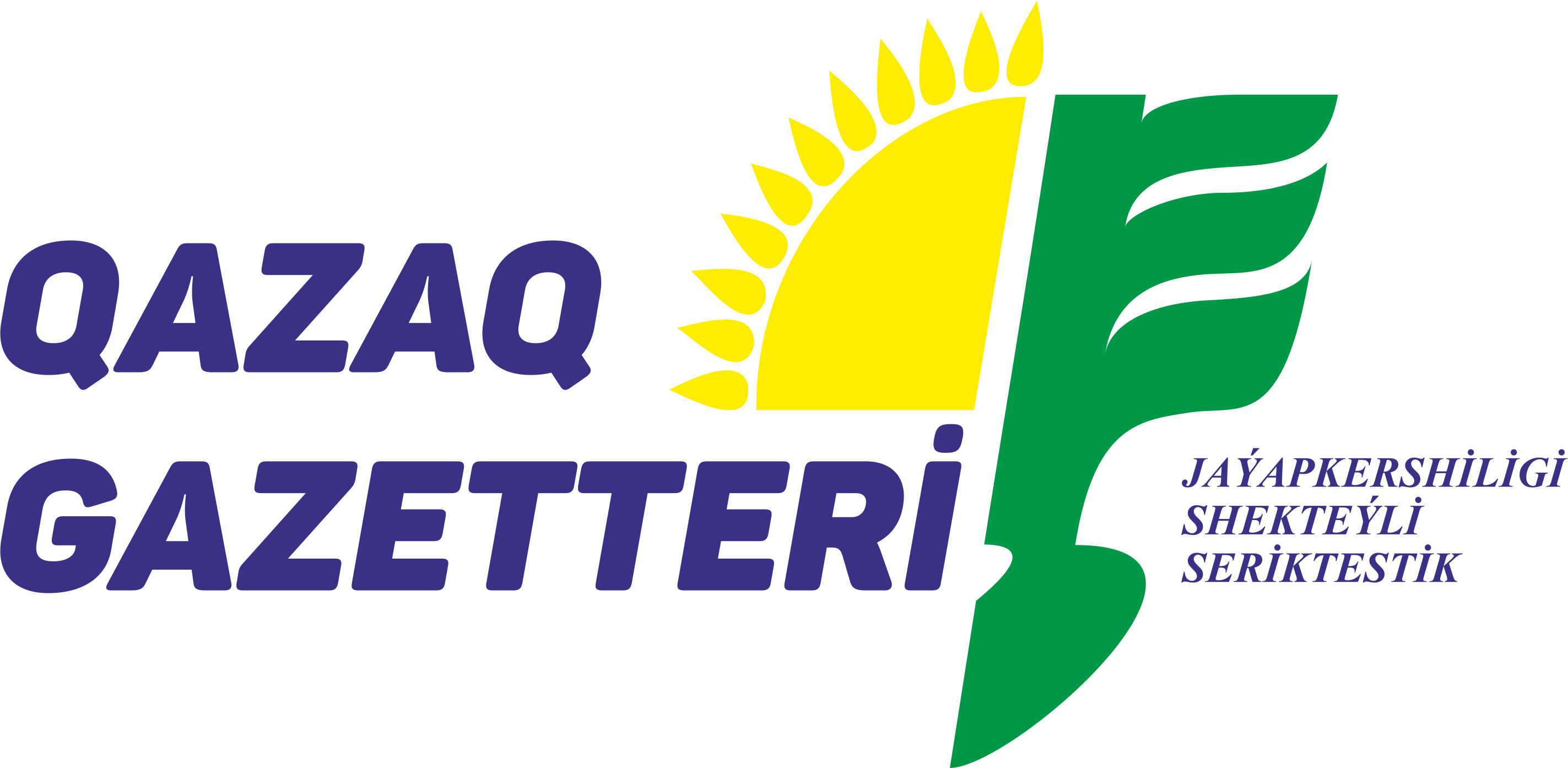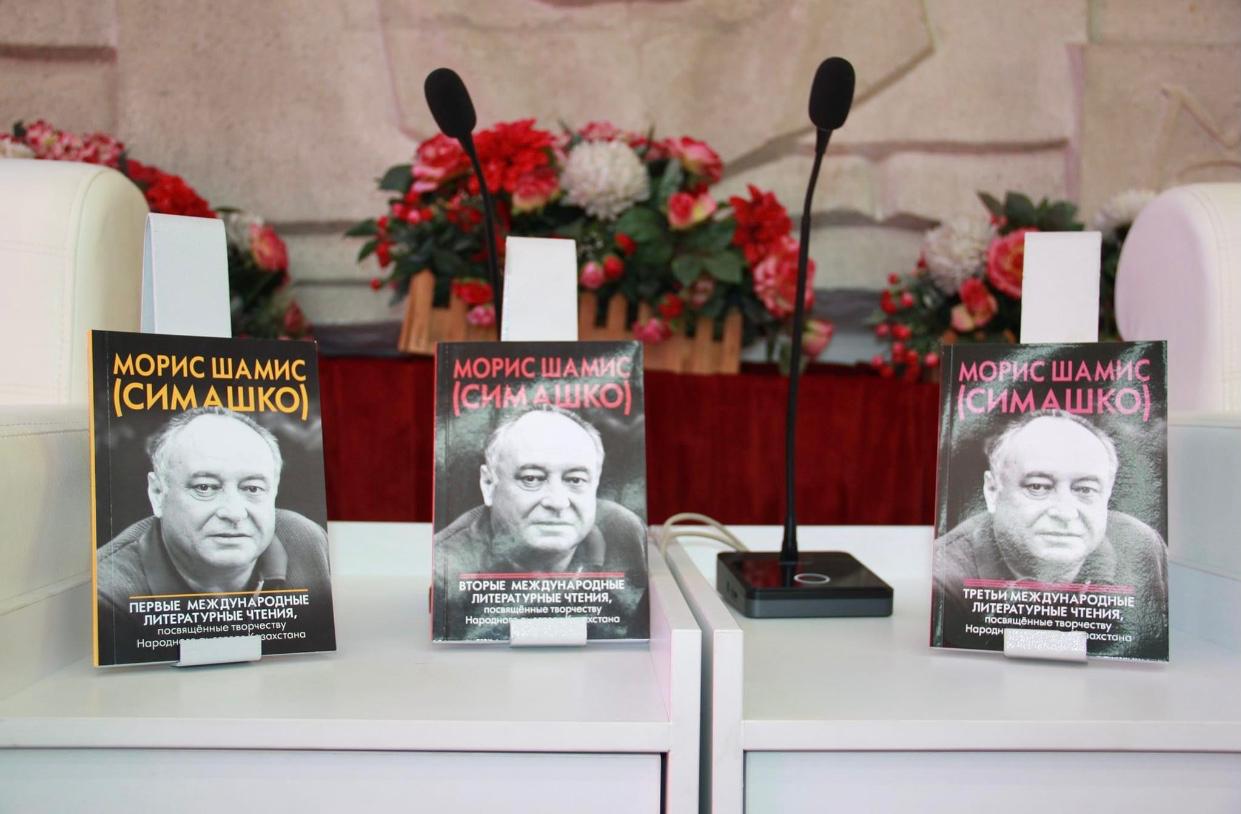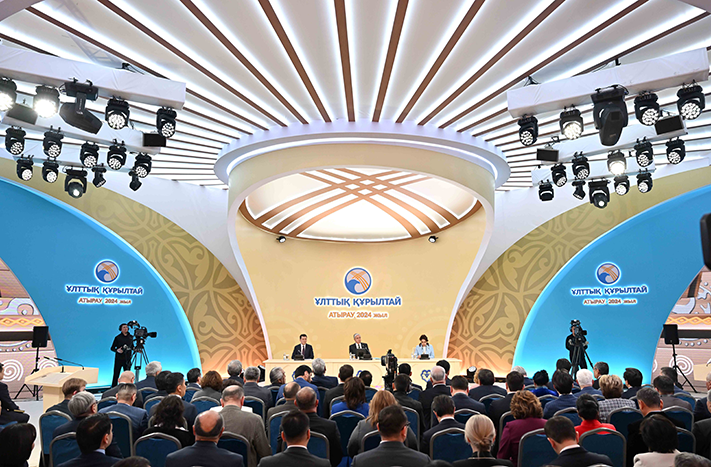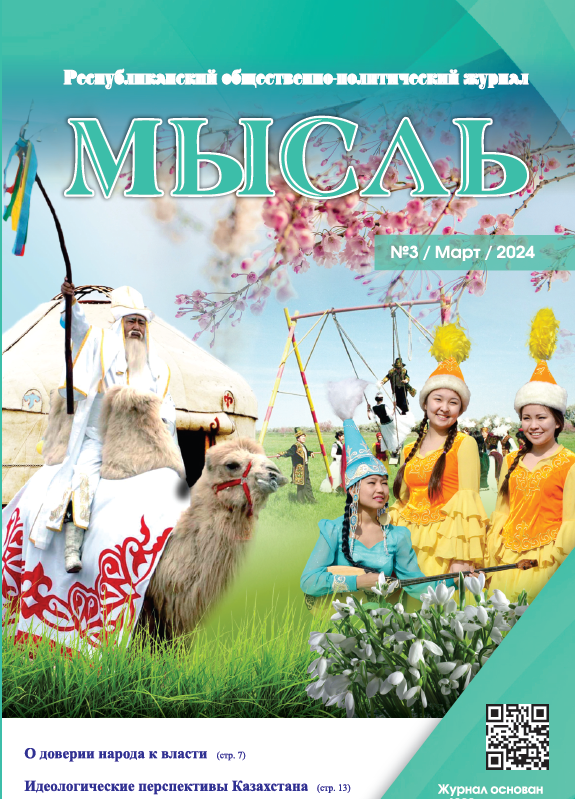- Общество
- 27 Февраля, 2019
VOICE OF THE PEOPLE’S SOUL

Zifa AUEZOVA Historian of Literature
Thinking of a poet it’s probably natural to look for laconic metaphors rather than prolonged descriptions. What comes to the minds of today’s Kazakhs when they hear the name of Ilias? Probably, the following: an outstanding lyrical poet inspired by the beauty of ancient Kazakh legends and songs from a young age, encyclopedist of the steppe life; a supporter of the 1917 revolution as a way to liberate his people from social and colonial oppression; a passionate creator of the new national literature that would expose the riches of Kazakh folklore to a broad Soviet audience and finally a symbol of the most tragic offerings brought by the Kazakh people to the altar of the Soviet state-building in the 1930s.
THE GENERATION OF SOCIAL CHANGE
Ilias was born in 1894 in the Jetisu (Seven Rivers) region in aul number 4, near the town of Kapal in the south-east of Kazakhstan at the border with China, where Russia established one of its forts in 1850. In his autobiography of 1928 Ilias writes that memories of his childhood are associated with the landscape of his aul on the sandy banks of the Aksu river with thickets of reed and willows. He mentions that his father Jansugur, a cattle-breeder with an average livestock, belonged to the Naiman tribe of the Middle Juz and was a good Muslim, who taught his son to read the Koran and pray. The generation of Kazakhs born in the last decades of the 19th century was confronted with a sequence of crucial social changes. The rapid advancement of the Russian troops and settlers east- and southwards, particularly after the abolition of serfdom in 1861 led to the emergence of a new administrative system for the Kazakh society. This resulted, on the one hand, in the redistribution of land, which had belonged to the locals and the establishment of Russian settlements, on the other, to the construction of new industrial enterprises and railways (such as Orenburg – Tashkent) and educational reforms. As part of the Russian Empire, the Kazakh regions experienced the consequences of such remarkable events as: the revolution of 1905, the land reforms of Stolypin (1906-14); the participation of Russia in World War I (and the related revolt of non-Russian peripheries of the Empire in 1916), and the Russian revolutions of 1917, which marked the end of tsarism and the beginning of the new social order. The generation of Kazakh intellectuals born in the 1880s-90s was educated first in the Kazakh language and learned to write in Arabic script and recite the Koran. For higher education they had to learn Turkish, Arabic or Russian. Since the beginning of the 20th century, and particularly after the revolutions of 1917 knowledge of Russian became crucial for Kazakh intellectuals in order for them to be actively involved in debates on ethnic minorities and to represent the interests of their people. In the 1920s and 1930s not only knowledge of Russian, but the ability to follow the mainstream discourse on the struggle between social classes and to place it in a Kazakh context became of vital importance.
PASSION FOR POETRY
Ilias grew up in surroundings where the tradition of reciting heroic legends and lyrical songs with the accompaniment of a two-stringed dombra had been well preserved. The best pieces of poetic improvisation which had been transmitted orally from one Kazakh tribe to another, from generation to generation, could be learned by eager young reciters from their relatives. In the early 20th century such a selection would include the poems of Abai (1845–1904), as well as Akan-Seri (1843–1913), Mashhur Jusup (1858–1931), and poets of the older generations, such as Makhambet (1803–46) or Sher-Niyaz (1817–81). Aitys – improvised duel battles of famous poets – were also learned by heart and recited in various parts of the Kazakh steppe. In his autobiography Ilias writes that he had too little time to study at his young age because of having to work everyday with his father either herding cattle or growing crops. However he was «always interested in words». He listened carefully to visitors, to the reminiscences of elderly women, poetic competitions between men and women, and stories about battles and wars. Having learned to read, Ilias started reciting ancient epics and gained popularity among his fellow-villagers. Then he started composing his own poems. Ilias mentions that as a young man he used to put down or rewrite his favourite pieces of poetry. One day he was fascinated by a beautiful poem about spring and copied it:
The coming of spring is marked by birds. Young people rejoice and laugh with friends.
A year later he found out that the poem was written by Abai and since then he learned much from the «Kazakh main poet» ordering his books from merchants. The special place that poets had in the hearts and minds of Kazakhs was described more than once in the Kulager poem of Ilias (the reader will be convinced thanks to this English translation):
Yours is the voice from the soul of the sea. You are the warrior of deep thought and power. Let the wisdom of your words be a wind of such force, that the river of your poem will flood out in a torrent. (translation of Belinda Cooke)
Having learned Russian in his adult years, Ilias saw how close his own belief in the poet as a seeker of truth, was to the thoughts of great Russian poets. One can almost hear Pushkin’s «With your word burn the hearts of the people» behind the Ilias’ lines.
EDUCATION AND NEW DIRECTIONS
At the age of sixteen Ilias entered a Kazakh school. Formal education introduced him to the world of written poetry. He started to put down his oral compositions in writing. His early lyrics was rooted in folklore, picturesque descriptions of landscapes and everyday life. In 1917 the Sary-Arka journal published two of his poems. In 1920, when the administrative and social infrastructure of the Russian Empire gave place to the Soviet system, Ilias entered teacher training courses in Tashkent and worked as a proof-reader for the newspaper Ak Jol. After graduation, he worked in the Department of Peoples’ Education to organize schools, conduct teaching courses, collect folklore, i.e. to do «cultural-educational work». In 1924 he was appointed as the director of the Institute of People’s Education in Almaty. He continued writing poetry and articles for Kazakh newspapers and soon he entered the Communist Institute of Journalism in Moscow, where he studied till 1928. In this period he mastered his knowledge of the Russian language and got acquainted with leading Russian poets Vladimir Mayakovsky, Demyan Bedny, Eduard Bagritsky and others. Russian authors were involved in political discussions on the social function of poetry in the newly constructed state. Having a good ear for rhythm, Ilias was well tuned in to the bold innovations in metrics introduced by Mayakovsky, the iconic author of the Soviet avant-garde...
Heavy as lead, my verses at attention stand, ready for death and for immortal fame. The poems are rigid, pressing muzzle to muzzle their gaping pointed titles. (At the Top of My Voice, translated by Max Hay ward and George Reavey)
Inspired by new literary contacts during his study in Moscow Ilias enriched his poems with new thematic content: the recent transformations in the Kazakh steppes, the emerging of factories and railways, mines and oil-wells, cars, tractors and airplanes, and the growth of the local working class.
CANONS OF A NEW IDEOLOGY
On his return from Moscow in 1928 Ilias published his first poetic volume Saganak (the capital of Altyn Orda in XIII c.) and started working in the editorial staff of the central Kazakh newspaper Enbekshi Kazakh (The Working Kazakh) in Kzyl-Orda, then the capital of the Kazakh Autonomous Soviet Socialist Republic. In that period Kazakh intellectuals, as well as their counterparts in the rest of the former non-Russian peripheries of the empire realized how important the role of the new state ideology became for the government. Public debates on the role of literature in the propagation of Soviet ideals were transmitted from Moscow to all the republics of the Soviet Union. Writers and poets were seen as key figures in this process. Poets were expected to share positive and inspiring messages about great transformations in the life of society. Hardships had to be mentioned in relation to the pre-Soviet past only. This would have been a difficult task for a poet, who observed the tragic sufferings of his people in the late 1920s and 1930s. In 1927 the Soviet government announced the collectivization cam-paign, which meant the withdrawal of farm produce and cattle from private property. Collectivization resulted in mass famine and the death of millions of Kazakhs, whose economy had been largely dependent on private herds of cattle and animal products. In 1928 a large group of Kazakh intellectuals was arrested on accusation of sympathies to the old regime and nationalism. Such measures served as a warning for those who could continue to work. He was in Moscow as a consultant for the Jubilee film Kazakhstan’s 10 years, when the sad news about the suicide of Vladimir Mayakovsky appalled Soviet literary circles. On April 12,1930 Ilias writes in his diary: «Such shocking news! Saw Vladimir Mayakovsky nearby at the club of the Writers’ Union during the discussion about Dovzhenko’s film Land... And this morning I see his picture in the Pravda... Dreadful». Fulfilling his professional mission of reflecting on the contemporary achievements of the Soviet construction, Ilias found it important to write about his people’s history and traditional art, thus in the 1930s he wrote several poems – Steppe, Kui (Melody), Kuishi (Musician) and plays - Kek (The Revenge), Turksib (the railway from Central Asia to Siberia finished in 1930), Isatai – Makhambet (about the 19th century poet and leader of the revolt against the Russian authorities Makhambet and his comrade Isatai). In this period he translated poetry and prose of Russian and some European authors into the Kazakh, starting with the 19th century classics Pushkin, Lermontov, Hugo and Heine to his contemporaries Mayakovsky and Gorky. In 1934 Ilias was elected as the chairman of the newly organized Writers’ Union of Kazakhstan. In 1934-37 he worked as an editor at the KazPolitlzdat (Kazakh Political Publishers) and was elected a member of the supreme governmental body, the Central Executive Committee of the Kazakh Autonomous Republic. However, his criticism of unjustified bureaucratic decisions appeared not only in satirical articles, but also in the unpublished poem Ice Town, where aul residents deprived of their cattle got frozen in the ice houses as a result of forced settling down during winter. In 1937 he finished Kulager, the tragic epic which is considered to be one of the best examples of 20th century Kazakh poetry and Ilias’ most beautiful composition.
ELEGY FOR A POET
Looking back at the literary oeuvre of Ilias, particularly the compositions of the last years of his life, the theme of the poet as «truth seeker» inevitably destined to a glorious, yet tragic end is often evident, he thus shares in the recurring theme of the great poets of the past. His Kulager is a dedication to the 19th century poet Akan-Seri (1843–1913). The best way to interpret the Kazakh word seri today would probably be «singer-songwriter», a bard, a poet who sings his texts with his own accompaniment on a music instrument. Akan became famous through his melodious and eloquent songs about the beauty and perishability of the nature, sufferings of loving hearts in separation, and unforgettable feelings leading to loneliness. Kulager was Akan’s favourite horse, killed by envious wealthy horse-owners during a horse-race, to prevent him from winning the race. Akan’s bemoaning song Kulager became widely known. Having borrowed Akan’s title for his own poem Ilias composed an epic elegy for the gifted poet who had been betrayed and ousted by powerful countrymen, but his songs had been learned by heart in every Kazakh aul. Telling the story of Akan, Ilias presented readers with a wide range of traditional Kazakh imagery and metaphors: in descriptions of mountains and lakes, horses and hunting birds; in creating vivid pictures of wrestling tournaments and horse-races; in expressing joy and grief. Grief and mourning over Kulager are particularly deep and moving. In the beginning and in the end of the narrative the reader sees the portrait of Akan, the lonely poet who lives in a birch-grove, far from the people. The mourning over a poet sounded distinctly in the time of massive repressions when poets and writers were easily accused of the most terrible crimes and executed. Telling the story of Akan, Ilias noticed that the greatest Russian poets Pushkin and Lermontov had been shot in duels at young age, challenged by those envious of them:
Born early against his will, such men die before their prime — Lermontov, Pushkin, birds shot on the wing. Did their shadows also loom in Kokshetau? (translated by Belinda Cooke)
Shadows of the Russian poets seemed to have loomed in the Kazakh lands in the 19th century. It proved to be the case in 1930s as well: Ilias was arrested on accusation of nationalism. According to the verdict of the Military Board of the Supreme Court of February 26,1938, Ilias Jansugurov, «the former Chairman of the Writers’ Union of the Kazakh SSR, a Soviet citizen», was accused of «taking part in a counter-revolutionary bourgeois-nationalistic, insurgent, terroristic, subversive, sabotage organization, which had been active in the Kazakh Soviet Socialist Republic in cooperation with the right-Trotskiest terrorist organization, aiming to overthrow the Soviet government, armed seizure of Kazakhstan from the USSR and establishment of a Kazakh bourgeois state under the guidance of Japan». Ilias was sentenced to be shot. The sentence was executed immediately. Ilias’ arrest shocked everyone who had known him and his poetry. The eternally tragic lot of a poet reciting out of his heart in turbulent times overtook the people’s darling, who himself was referred to as the Kulager of Kazakh poetry. In her diary Fatima Gabitova, the loving wife of Ilias, described her last meeting with him in February 1938. At that time the couple had six children. The youngest Bulat was born after his father’s arrest accompanied with the confiscation of property. Fatima came to see Ilias in the prison and showed him his baby son. Ilias looked sadly at the baby and said: «Let our son be a shoemaker. Let him learn how to make shoes. Being a shoemaker and staying free is better than being a guiltlessly imprisoned writer». It was only in 1955 that Fatima received an official document confirming the execution of Ilias. In spite of prolonged persecutions against herself as a «wife of the people’s enemy», she managed to provide her children with a good education and supported their interest in literature. In the most difficult years after the arrest of her husband Fatima was supported by my grandfather, the writer Mukhtar Auezov, who had known Ilias since 1928 as a fellow-writer and a friend. Ilias and Mukhtar had closely worked together for about ten years starting with a field trip to collect materials on the 1916 revolt and later in the Kazakhstani Writers’ Union. Mukhtar had also been arrested on accusations on nationalism few years earlier and realized how tragic the situation of his friend’s family was. A family of a «people’s enemy» was forced into exile from the capital city. Mukhtar Auezov, as a faithful friend of Ilias and deeply devoted to Fatima supported the whole family during the war years (1941–1945) and later, when Fatima after official «rehabilitation» in 1957 had started to publish Ilias’ heritage carefully preserved in the years of hardship. Forbidden newspaper publications of Kulager were returned to Fatima by S. Begalin, who happened to come to Jansugurov’s house the day after his arrest in August 1937 and had been asked by the guard to help loading confiscated property; he put newspapers with published Kulager into his bosom and kept them in cushions for 20 years. Kulager returned to the readers and now came to the international audience. Kulager as a phenomenon of a talented and outstanding person will always remind us that we are here to aim for a fair society and genuine relations in order to fulfil our best capacities...

2533 раз
показано248
комментарий






